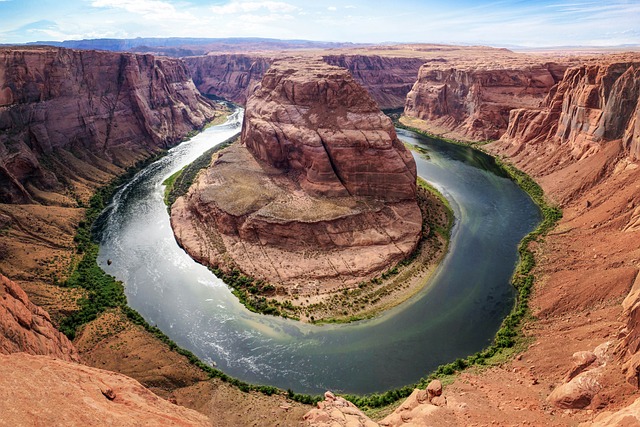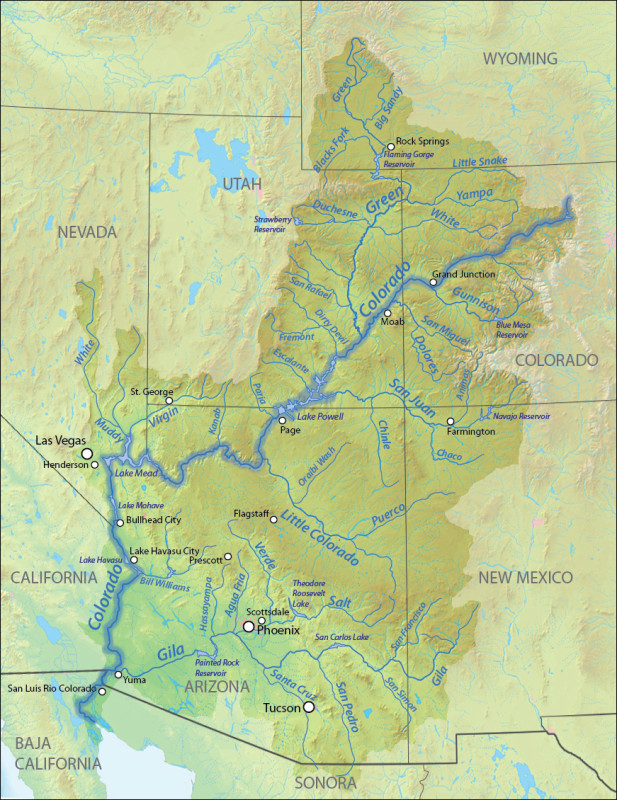 The Colorado River is struggling to keep up with demands from seven western states that depend on it for water.
The Colorado River is struggling to keep up with demands from seven western states that depend on it for water.
The Bureau of Reclamation has repeatedly requested that California, Colorado, New Mexico, Utah, Wyoming, Arizona, and Nevada, known as the “Basin States”, come up with a plan to reduce their water usage. Each time, the deadline passed without the states coming to an agreement.
Finally, the Bureau gave the states until the end of January 2023 to come up with a solution, but yet again no agreement was reached. The Colorado River, which is at a historic low, originates in Colorado's Rocky Mountains and empties into the Gulf of California. As a result, Lake Powell and Lake Mead - which are fed from the river - also are experiencing record lows.
Why can’t the region agree on such important matters? Let’s find out!
The Colorado Compact
Signed in 1922, the Colorado River Compact (CRC), established the Upper and Lower Basins. The CRC gave rise to the “Law of the River”. This “Law” is comprised of contracts, regulations, and court decrees which govern river usage. Today, 40 million people rely on the river for drinking water, energy production, irrigation, and more.
 The Compact rationed usage based on which state consumed the most water at the time the agreement was made. Due to this, California receives the lion’s share.
The Compact rationed usage based on which state consumed the most water at the time the agreement was made. Due to this, California receives the lion’s share.
The agreement hasn't been updated for a century, and many feel that the system is outdated. Currently, the river doesn’t have enough water to go around - and droughts in the west only worsen it. The river is at a historic low, and states are using it faster than it is being replenished.
To minimize strain, the Bureau decided that consumption should be decreased by roughly one-third of the average annual river flow. Six states support a plan to reduce water usage, but it involves California suffering the largest cuts. California has the largest water consumption rate, so it seems logical that they reduce more than others.
The “Golden State” objects to this as it is home to many farming communities, and requires more water for irrigation. Without sufficient water for crops, food shortages may worsen.
Will They Agree?
Under the six-state proposal, each state’s water allotment should account for water loss and evaporation along the river. To counter this proposal, California resubmitted a previous offer to reduce their water usage by 400,000 acre-feet -- but, they will need to reduce even more to save the river. This will mean huge reductions for California especially.
It seems likely that the Basin States will go to court to resolve the issue since they are unable to agree on a solution. The good thing is, both the Seven Basin States and the government are determined to find a solution to this crisis!
Sources: BBC, CalMatters, American Rivers, LA Times, Washington Post, Colorado.gov








